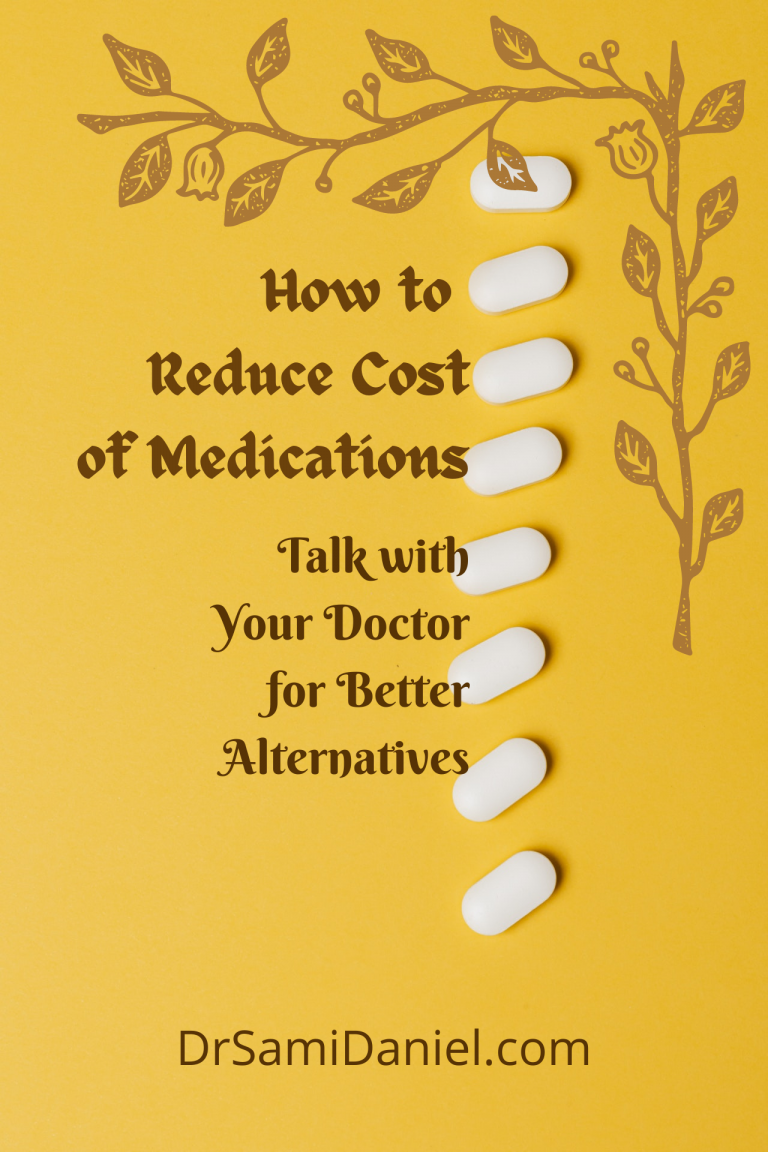Why the Doctor Sees You for Medication Refills
“I’ve been on these exact same medications for years! Why do I need a Doctor’s appointment for medication refills?”
This is a common question most patients have when asked to schedule an appointment for a simple medication refill. And it is a really good question! Why should the Doctor need to see a patient when all they need is a refill of medications to continue on with life?
After all, setting up an appointment for such a simple request seems like a hassle. Especially in our busy lives with so much to do and get done. This was supposed to be a simple errand to check off the list so that we can pick up the medications while grocery shopping on the way home from work.
The Doctor is not trying to interrupt your daily routines. There are legitimate concerns the Doctor has in order to make this request of their patients prior to submitting a prescription renewal. I will try to explain them here.
Why the Doctor Asks You to Come In Every 3 Months
If you are on a medication, there is a reason. High blood pressure, high cholesterol, diabetes, heart issues, lung issues, liver problems, kidney problems, bleeding disorders, coagulation disorders, the list goes on which require medication.
However the moment the Doctor decides to place a patient on medication, that person now must be monitored for 2 main reasons:
- To make sure the person can tolerate the medication. Meaning they do not have any ill side effects from taking the medication.
- To make sure the medication is serving its purpose effectively. Meaning that the medication is doing its job.
Medications have Side Effects
Medication refills come with a refill of possible side effects too.
Have you ever heard a commercial about a medication without a laundry list of side effects attached? I personally have not thus far.
It is a known fact that medications come with side effects. Simply read the package inserts that come with every prescription refill. Even the pharmacist will debrief you on any new medications you are not familiar with prior to handing them to you.
“But I’ve never had a side effect from this medication. I should be fine.”
That is a common argument most people have. And it is a very good one. However the counter-argument is simply this: Just because you have not had any side effects SO FAR, does not mean that you will not have any side effects in the future. What is the basis of this argument?
Everybody’s body is dynamic. We are not static beings walking on the face of this Earth from the moment we are born to the day we pass away. Throughout this life, our bodies are in a constant state of transformation. There is a lot of life within each of us!
The Doctor is aware of this and must always take great care of a patient when placing them on a particular medication. Because not only can the side effects of a medication develop in response to changes in the body, but allergies as well.
Therefore you must speak with your Doctor if you suspect that your body is no longer able to tolerate the medication. And you must certainly speak with your Doctor if you develop itching rash or hives after taking a particular medication. Even if you have taken it for years, things may change based on how your body has evolved over time.
Medications can Lose Efficacy
The body continues to evolve throughout its lifetime. As a result, medications often lose efficacy. What does that mean?
This means that the same dose of medication may not be as effective as when you first started it. In other words, the medication is not doing its job as well as when you first started it. Why?
Did the medication manufacturer make a mistake? Or change the medication in some way? Did the Doctor prescribe a different dose? Did the pharmacist give you an alternative medication? All these situations are possible and you would be wise to double check with your Doctor and pharmacist. However there is something else to consider.
Consider medications like trying on clothes at a store. You go to the department store with the intention of buying some new clothes. You know your approximate size, so you go to that section of clothes and begin to sift through the options. Eventually you find yourself carrying a few pieces that you like, but you need to try them on to make sure they fit.
Some fit, some don’t. Some are a bit too tight, some are too loose. Others are too short or too tall. Some feel good and others feel rough. And yet every one of the pieces are supposedly the same size!
You decide on the clothes you want and make a purchase. However you have the full knowledge that one day you will return for new clothes again because these will become old, worn, and may no longer fit.
Medications, crudely speaking, is like shopping for clothes. Clothes do not always fit even though they are supposed to be your size. And when they do fit, the body changes over time and may cause them to no longer fit.
Therefore the Doctor often considers the factor of time playing a role as the body changes the way it interacts with the same medication it has been receiving. Over time, the body may choose to reject the medication (such as in the form of an allergy or a sensitivity). The body may also choose to no longer respond to the medication (such as blood pressure going back up despite taking the same medication consistently).
The body changes, yet clothes and medications do not. Your clothes will tell you when your body has changed. Similarly, the medications themselves may tell you. However there are other things the Doctor checks for in order to determine what has changed.
Vitals and Labs
Your vital signs and lab work are great indicators to let the Doctor know that the body has changed in such a way that the medication may no longer be effective at the current dose; or no longer effective at all!
For example, if your blood pressure has been well controlled with medication for years but your Doctor noticed a significant elevation for a couple visits, your Doctor realizes that perhaps the “clothes no longer fit”. Perhaps a bigger size is necessary to maintain control. The opposite can also be true if the blood pressure is too low.
Your lab work is considered to determine the levels of many things. If levels are too high or too low, the Doctor may again consider medication adjustments that best suits your body’s current needs.
Signs and Symptoms
Developing signs and symptoms are another indicator to reevaluate the medications. If a person has been symptom-free with the use of medication and then starts redeveloping symptoms despite taking medications as directed, the Doctor will certainly consider making appropriate adjustments.
But Why 3 Months?
How does the Doctor know when to ask you to come back for a check up? A repeat appointment can range anywhere from just a couple days to one year depending on your Doctor’s goal and plan to best ensure your health. Three months seems like a lot for medication refills! But here’s the reasoning.
Remember those labs? They are simply a picture. A photo that captures only a single moment in time. In this moment, the internal biochemical workings of the body are exposed.
This includes electrolyte levels, kidney function, liver function, thyroid function, red blood cell levels, white blood cell levels, sugar levels and more. They can all be affected by medications, especially the liver and kidneys since they take the brunt of processing and filtering medications in the body.
Any combination of increased or decreased levels in each of these point to certain diagnosis and further considerations for possible additional testing.
Ultimately, it is only a single snap shot. And since the technology is not yet present to continuously monitor all biochemical processes through a video, Doctors must make clinical decisions based on these lab results.
As previously mentioned, your body changes over time. And therefore your body will change it’s response to medications over time.
Stringing together a few pictures will create a depth of understanding into how your body is responding over time. And gives the Doctor an idea of how to ensure you continue to receive medication that is helpful to you.
Your Doctor is On Your Healthcare Team
Your Doctor is there to ensure your good health as much as possible. Therefore your office visit may turn from an inconvenience to one of production and improving your life.
Consider why your Doctor asks you to come in for what seems to be a simple medication refill. Often you will find that your Doctor has many considerations to share with you. Then you can work together to determine what is best for your health.
There may be a change, several changes, or no changes required. In any case, you and your Doctor have taken the opportunity to be on the same page and optimize your healthcare.







